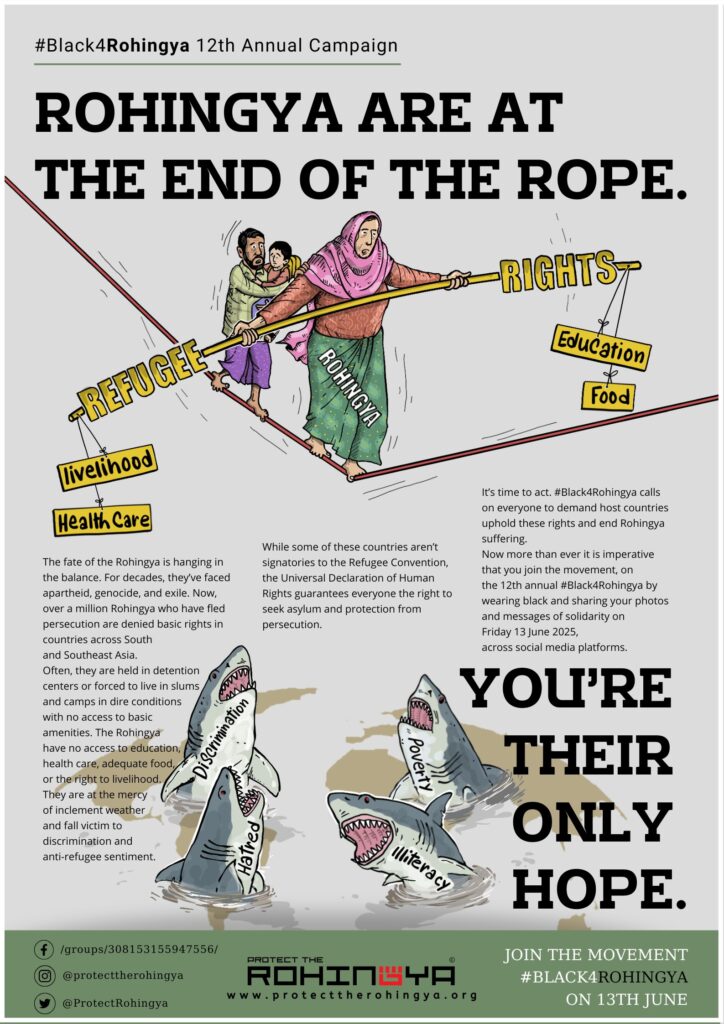Join the movement, #Black4Rohingya by wearing black and sharing your photos and messages of solidarity on Friday 13 June 2025, across social media platforms.
The Rohingya have suffered decades of institutionalised apartheid, denial of citizenship rights, freedom of movement, access to education, health services and land rights. They have been subjected to arbitrary arrests, sexual violence, forced labour, extortion, forced conscription and collective punishment.
During August 2017, the Myanmar military perpetrated a genocide against the Rohingya forcing a million Rohingya to flee to Cox’s Bazar in Bangladesh, where they now live in the world’s largest refugee camp. Cases related to the genocide are currently before the International Court of Justice, International Criminal Court and the Argentine courts.
Conflict since the military coup of 2021 has exacerbated the junta-manufactured humanitarian and human rights disaster. Evidence of crimes against humanity and war crimes is mounting daily. Most of northern Rakhine State is currently under the control of the Arakan Army (AA), which is an ethno-nationalist Rakhine armed group. There are allegations of, torching of homes, arson attacks, razing of villages, extortion, targeted killings and beheadings of Rohingya by AA forces. These atrocities must stop immediately.
Presently most Rohingya live in exile across South and Southeast Asia. By not officially recognizing them as refugees, the countries they live in have denied them their most basic human rights. The Rohingya have no access to education, health care, adequate food, or the right to livelihood. Often, they are held in detention centers or forced to live in slums and camps in dire conditions with no access to basic amenities. They are at the mercy of inclement weather and fall victim to discrimination and anti-refugee sentiment.
Malnutrition has surged throughout the Rohingya community, and the UN has warned of ‘acute famine conditions’ in Rakhine state. The collective trauma of the brutality they have been subjected to in Myanmar has taken a massive toll on the mental health of the community. In the absence of access to formal schooling in many countries, Rohingya children can only attend religious institutions for their basic education, which leaves them with very limited prospects for the future.
While the countries Rohingya refugees have fled to, may not be signatories to the 1951 UN Refugee Convention and its 1967 Protocol, the Universal Declaration of Human Rights protects everyone’s right to seek and enjoy asylum from persecution in other countries. The principle of non-refoulement, which also forms part of customary international law protects people from being returned to a country where they are at risk of persecution. It is imperative that states Rohingya live in ensure the fulfilment of their most basic rights.
Most importantly the Rohingya are indigenous to Myanmar, and they must be afforded the right of return in a voluntary, safe and dignified manner.
#Black4Rohingya is a Protect the Rohingya initiative, initially held on 5 July 2013 and thereafter on the 13 June to commemorate those Rohingya who were massacred in Arakan State in the second week of June 2012.

